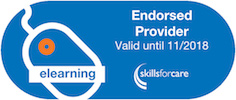TQUK Level 2 Award in Food Safety in Catering (RQF)


TQUK Level 2 Award in Food Safety in Catering (RQF) at a glance
- 3-year nationally recognised certificate
- 2 hours and 59 minutes of engaging video training
- Video access for 8 months
- Printable wall certificate
- CPD time credit conformation
- Free weekly video refresher
- Evidence Based Training certificate
- Videos include subtitles
This qualification is recognised and accepted by the Maritime and Coastguard Agency commonly known as the MCA.
The aim of this accredited qualification is to provide individuals with basic knowledge of food safety practices that are essential in the catering industry. This includes the hazards and risks to food safety presented by food operations and personnel, together with cost-effective, practical control measures.
The qualification is designed principally for those who are or intend to be, food handlers working in catering. It is also appropriate for those providing services to catering premises including pest control operators, maintenance engineers, cleaners, and laundry and delivery personnel.
Achievement of this qualification will enable learners to identify how to make changes to catering practices in order to improve the safety of catering services.
All successful learners who would like to be awarded a regulated certificate must complete an online exam through the awarding organisation. This exam must be scheduled 7 days prior to the date you wish to complete the test. You must contact support@protrainings.uk or compliance@protrainings.uk to schedule this exam.
This course is also subject to an ID check to prove and validate each learner that completes this training.
This Ofqual approved qualification has been developed specifically for insertion onto the Qualifications and Credit Framework with full support from People 1st, the Sector Skills Council for Hospitality, Leisure, Travel and Tourism. It is therefore fully compliant with industry and regulatory standards as well as being recognized by environmental health practitioners, auditors and other enforcement officers.
Please be advised that the classroom course has a minimum age requirement of 16.
The content of this and all our courses has been independently certified as conforming to universally accepted Continuous Professional Development (CPD) guidelines and come with a Certified CPD Statement as well as a ProTrainings Certificate and for online courses an Evidence Based Learning statement.






